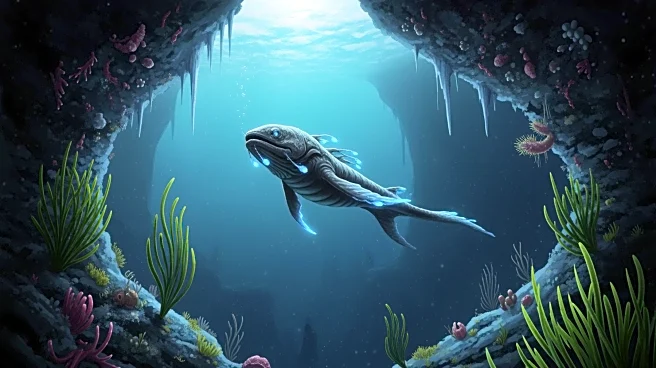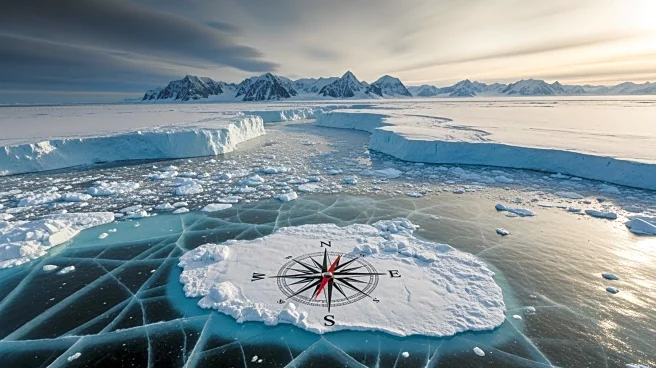What's Happening?
A recent deep-sea expedition in the Southern Ocean has documented 30 previously unknown species, including a carnivorous 'death-ball' sponge and various new sea stars and crustaceans. Researchers collected nearly 2,000 specimens from depths of up to 700
meters, discovering new hydrothermal vents and vibrant coral gardens. The expedition, part of the Ocean Census initiative, aims to accelerate species discovery through collaborative workshops and advanced imaging techniques.
Why It's Important?
The discovery of new species in the Southern Ocean highlights the vast, unexplored biodiversity of the deep sea. With only 10% of ocean life cataloged, these findings provide crucial baseline data for conservation efforts and the implementation of international treaties on marine biodiversity. Understanding these ecosystems is vital for global ocean circulation, carbon storage, and nutrient distribution, impacting climate change and environmental policies.
What's Next?
The Ocean Census initiative will continue to document ocean biodiversity, with plans for further expeditions and species discovery workshops. The data collected will support the creation of marine protected areas and inform environmental assessments for activities on the high seas. Researchers aim to make all discoveries openly accessible, fostering collaboration among scientists, policymakers, and conservationists.
Beyond the Headlines
The expedition underscores the urgency of documenting ocean biodiversity before climate change and human activities threaten unknown species. The findings contribute to a growing body of knowledge that can drive future scientific endeavors and conservation strategies, emphasizing the interconnectedness of global ecosystems.














